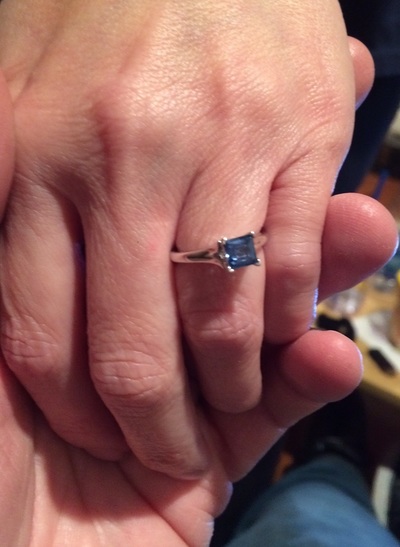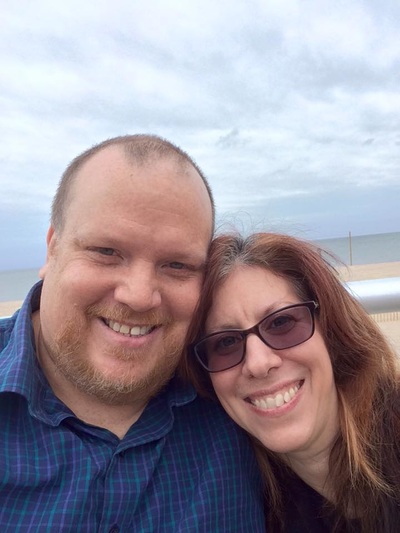|
Throughout my twenties and early thirties, I craved marriage without ever truly knowing the reality behind the word and all its social connotations, expectations, and pressures.
That’s right. Craved it. As if it were a cupcake in a bakery display case, my nose pressed against the glass, unable to reach it. The word was even more romantic than the thing itself. I was puzzled when married couples told me marriage was “work.” Kind of like people who said they thought reading was work. I didn’t get it. That wasn’t the vision in my head. I’d always pictured something fulfilling, satisfying. When the I Dos were said and done, so was the work. Happily ever after. I’m grateful my ideas were never tested, because then I’d be writing this blog post as a divorced woman. In my late thirties and especially my early forties, I realized that everything I’d sought in my utopian vision of marriage was actually attainable within myself. What I expected from a man, I provided instead. The fulfillment I’d desired could only be achieved by being my most authentic self. Satisfaction was the product of tapping into that authenticity and expressing it in all facets of my life, from teaching to writing to hanging out in a coffeeshop, either by myself or with a friend. It was about running to, rather than from, my stories. And then came the master key: I am neither responsible for nor dependent on anyone’s happiness but my own. I’ve had several life-changing realizations in my forty-five years, and that was one of them. The result was that I loved being single. I loved the independence, the roominess of flight. I’d come to view marriage not as an elusive confection but rather a bullet I’d dodged, especially when I witnessed the struggles of loved ones in their marriages. Where I had once seen contentment, I now saw constraint. But the word, and the thing itself, was still too abstract for me to comprehend. I knew I’d never fully get it until I was in the thick of it. And yet, it didn’t seem as if I’d ever get there, and I was more than OK with that. I knew one thing, however: if I did finally meet a man I wanted to marry, it would feel like home. And that’s exactly what happened. Craig and I knew early into our romantic relationship (remember, we’d been close friends for the better part of two years, and knew each other for four) that we were on the road to marriage. It was on the boardwalk at Sunken Meadow in May, actually, when he first took my hand and said, “I think I’m going to marry you,” and I looked up and said, almost matter-of-factly, “I think you’re right.” But he and I are practitioners of what we call “intentional living.” Just because we knew this information didn’t mean we needed to act on it with any sense of urgency. In fact, we were very tuned in to what felt calm vs. what felt crazy. (Still are.) We had yet to live together, day in and day out. I had yet to see him in a bad mood. He had yet to see me lose it in an airport. We had yet to experience grief, loss, frustration, or illness together. We had yet to see our childhood traumas rear their ugly heads in our adult behaviors. That was the “work” I’d so often heard about. But here’s the thing: when the relationship is attended to, day by day, moment by moment, the work feels more like maintenance. And the tools are appreciation, kindness, generosity, communication, and, most important, boundaries. It’s that master key: I am not responsible for Craig’s happiness, and he isn’t responsible for mine. This is not to say that I don’t want to or can’t say or do kind things for him; but if Craig can’t be happy unless I am, or unless I say or do something kind for him—or vice-versa—then we’re in big trouble. When I came to Billings at the end of September to spend a week prior to our trip to California, and I asked, “Do you want to shop for a ring?” he replied without hesitation, “Yes.” Even at the jewelry store, as we surveyed the selection, we kept checking in with each other. “How are you feeling about this?” “Does it feel calm, or does it feel like chaos?” It felt like home, through and through. And yet, much like Billings, it was a home I’d never been to before. I still had to get used to the idea. I had to shed all pre-existing notions and former selves—the self-satisfied singleton and the starved one as well. Re-examine what marriage meant to me in the here and now, as a word and a concept. It was no longer a thing to be attained or consumed. Like everything else in my life, it was a state of being. The ring is beautiful. And Craig’s proposal is a story to be told again and again. But it’s not about that. Or the wedding. Or the word. It’s about the maintenance. And it well may be my favorite part of the journey. |
Archives
June 2024
Categories
All
|


 RSS Feed
RSS Feed